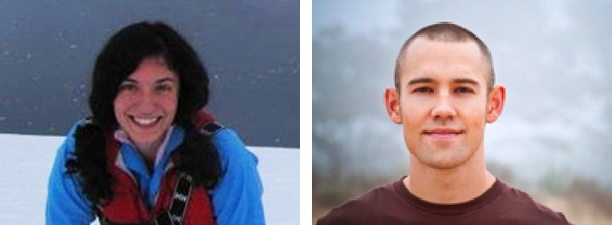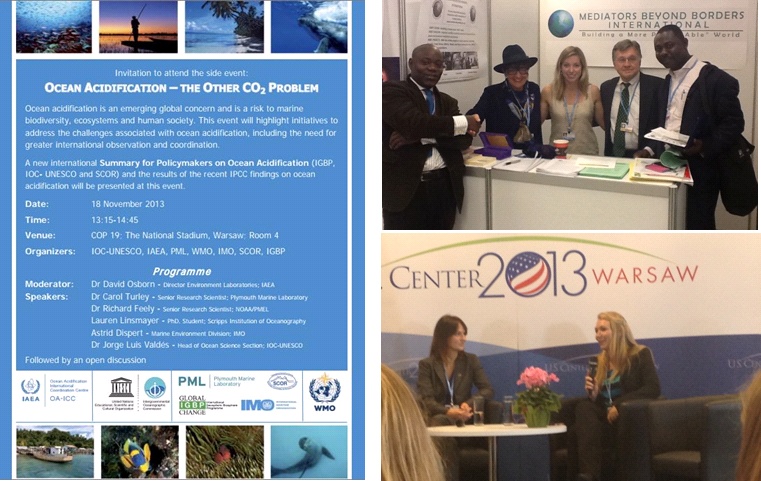
The world’s top climate-policy summit is going on right now in Warsaw, and many of the policy makers there know too little about the actual science of climate change. A dynamic group of young San Diego scientists is at the summit to do something about that. Two of them, Amy Van Cise from the Scripps Institution of Oceanography (SIO) and Nick Obradovich from the University of California (UCSD), found time to meet with a few of us from SD350 last week. We were so impressed, we had to let you know about them.

The young scientists, mostly PhD students at SIO and UCSD, are focusing on a crucial area almost unknown to most policy makers: How global warming is affecting our oceans. The oceans cover more than 70% of our planet, absorb a quarter of the heat-trapping carbon dioxide that we are adding to the atmosphere, and take up 90% of the excess heat being trapped in the climate system. In that process, the oceans are warming, getting more acidic and losing dissolved oxygen. Those changes are harming ecosystems, species and fisheries worldwide. Yet, the oceans are almost completely absent from the world’s policy discussions about climate change. The SIO/UCSD students are in Warsaw to bring key facts about ocean and climate to the 19th Conference of Parties (COP) to the United Nations Framework Convention on Climate Change.

It’s a tough audience to crack: An invitation-only conference open mostly to governments and big nongovernmental organizations. But, as part of the official Scripps/University of California delegation, the students have rare access to policy makers. They’re taking advantage of that access with an energy that surprised us. Through persistence and force of will, they’ve managed to get two full presentations included in one of the side events that go on at COP. (How they navigated the UN bureaucracy to get those talks included could make a blog posting in itself.) They’re also spreading the word through their booth, and simply by walking up to delegates at the conference, armed with a few carefully honed key messages.
What impressed us most was the drive, sincerity and competence of the young scientists themselves. One of us (Bill) knows how tough a science PhD can be, especially at a world-class institution such as SIO or UCSD. We’re amazed they have the energy left over to reach out to policy makers. If Americans in general could meet climate scientists like them, many would get a better sense for how real climate change is.
They call themselves Ocean Scientists for Informed Policy. You can see them in action here (click on the gallery on the right), here, here and here. Check them out. They’ll give you hope.
Blog post researched by SD350’s Bill Avrin, Bonnie Funk and Janina Moretti. Photos courtesy of Ocean Scientists for Informed Policy.
 This text by William F. Avrin is used here by permission of the author, and is licensed under a Creative Commons Attribution-NonCommercial-ShareAlike 3.0 Unported License.
This text by William F. Avrin is used here by permission of the author, and is licensed under a Creative Commons Attribution-NonCommercial-ShareAlike 3.0 Unported License.

2 Responses
It’s great to see the drive of these local young scientists!